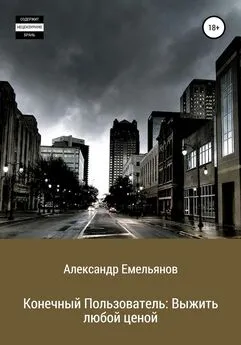Пользователь - o 3b3e7475144cf77c
- Название:o 3b3e7475144cf77c
- Автор:
- Жанр:
- Издательство:неизвестно
- Год:неизвестен
- ISBN:нет данных
- Рейтинг:
- Избранное:Добавить в избранное
-
Отзывы:
-
Ваша оценка:
Пользователь - o 3b3e7475144cf77c краткое содержание
o 3b3e7475144cf77c - читать онлайн бесплатно полную версию (весь текст целиком)
Интервал:
Закладка:
Pendleton, Pension Flavin, Cannes. It takes time to achieve such a feat in Europe, but he
waited patiently, and at last heard his old pal's sleepy voice.
Lanny said: "The Detazes are ready, and I'm waiting in Munich for you. I am buying some
others, and want to close the deal and move them on Friday. Do you think you can get here
then?"
"By heck!" said Jerry. It was Wednesday midnight, and his voice came suddenly awake. "I
can't get visas until morning."
"You can hunt up the consul tonight and pay him extra."
"I'll have to go and make sure about Cyprien first." That was a nephew of Leese, who did
truck-driving for Bienvenu.
"All right, get him or somebody else. Make note of my address, and phone me at noon
tomorrow and again late in the evening, letting me know where you are. Come by way of Verona
and the Brenner, and don't let anything keep you from being here. If you should have a
breakdown, let Cyprien come with the truck, and you take a train, or a plane if you have to. I
have somebody here I want you to meet on Friday."
"O.K." said the ex-tutor and ex-soldier; he sort of sang it, with the accent on the first
syllable, and it was like a signature over the telephone.
IX
Baron von Zinszollern possessed an Anton Mauve, a large and generous work portraying a
shepherd leading home his flock in a pearly gray and green twilight. It seemed to Lanny a fine
example of that painter's poetical and serious feeling, and he had got the price down to thirty
thousand marks. He had telegraphed Zoltan that he was disposed to buy it as a gamble, and
did his friend care to go halves? His friend replied Yes, so he went that morning and bought the
work, paying two thousand marks down and agreeing to pay the balance within a week. This
involved signing papers, which Lanny would have on his person; also, an influential Nazi
sympathizer would have an interest in testifying that he was really an art expert. Incidentally
it gave Lanny a pretext for going to the Munich branch of the Hellstein Bank, and having
them pay him thirty thousand marks in Nazi paper.
At noon the dependable Jerry telephoned. He and Cyprien and the camion were past
Genoa. They would eat and sleep on board, and keep moving. Lanny told him to
telephone about ten in the evening wherever they were. Jerry sang: "O.K."
A little later came a call from "Boecklin," and Lanny took him for a drive. He said: "It's all
fixed. You're to pay twenty-three thousand marks, and your man will be delivered to you
anywhere in Dachau at twenty-two o'clock tomorrow evening. Will you be ready?"
"I'm pretty sure to. Here's your money." Lanny took out his wallet, and handed it to his
friend beside him. "Help yourself."
It was improbable that Hugo Behr, son of a shipping clerk, had ever had so much money in his
hands before. The hands trembled slightly as he took out the bundle of crisp new banknotes,
each for one thousand marks; he counted out twenty-three of them, while Lanny went on
driving and didn't seem to be especially interested. Hugo counted them a second time, both
times out loud.
"You'd better take your own, also," suggested the lordly one. "You know I might get into
some trouble."
"If you do, I'd rather be able to say you hadn't paid me anything. I'm doing it purely for
friendship's sake, and because you're a friend of Heinrich and Kurt."
"Lay all the emphasis you can on them!" chuckled Lanny. "Mention that Heinrich told you
how he had taken Kurt and me to visit the Führer last winter; and also that I told you
about taking a hunting trip with Göring. So you were sure I must be all right."
Hugo had got some news about Freddi which the other heard gladly. Apparently Lanny had
been right in what he had said about the Jewish prisoner; he had won the respect even of those
who were trying to crush him. Unfortunately he was in the hands of the Gestapo, which kept
him apart from the regular run of inmates. A prison inside the prison, it appeared! The rumor
was that they had been trying to force Freddi to reveal the names of certain Social-Democrats
who were operating an illegal press in Berlin; but he insisted that he knew nothing about it.
"He wouldn't be apt to know," said Lanny. To himself he added: "Trudi Schultz!"
It had been his intention to make a casual remark to his friend: "Oh, by the way, I wonder if
you could find out if there's a man in Dachau by the name of Ludwig Schultz." But now he
realized that it was not so simple as he had thought. To tell Hugo that he was trying to help
another of the dreaded "Marxists" might sour him on the whole deal. And for Hugo to tell his
friends in the concentration camp might have the same effect upon them. Lanny could do
nothing for poor Trudi—at least not this trip.
X
He drove the car to Dachau, and they rolled about its streets, to decide upon a spot which
would be dark and quiet. They learned the exact description of this place, so that Hugo
could tell it to the men who were going to bring Freddi. Hugo said he had an appointment to
pay the money to a man in Munich at twenty o'clock, or 8:00 p.m. according to the American
way of stating it. Hugo was nervous about wandering around with such an unthinkable sum
in his pocket, so Lanny drove him up into the hills, where they looked at beautiful scenery. The
American quoted: "Where every prospect pleases and only man is vile." He didn't translate it for
his German friend.
Hugo had been talking to some of his party comrades in Munich, the birthplace of their
movement, and had picked up news which didn't get into the gleichgeschaltete Presse. There
was a terrible state of tension in the party; everybody appeared to be quarreling with everybody
else. Göring and Goebbels were at daggers drawn over the question of controlling policy—which,
Lanny understood, meant controlling Hitler's mind. Goebbels had announced a program of
compelling industry to share profits with the workers, and this, of course, was criminal to Göring
and his friends the industrialists. Just recently von Papen, still a Reichsminister, had made a
speech demanding freedom of the press to discuss all public questions, and Göring had
intervened and forbidden the publication of this speech. A day or two ago the man who was
said to have written the speech for the "gentleman jockey" had been arrested in Munich, and
the town was buzzing with gossip about the quarrel. It was rumored that a hundred and fifty of
Goebbels's personal guards had mutinied and been sent to a concentration camp. All sorts of
wild tales like this, and who knew what to believe?
They had come to the Tegernsee, a lovely mountain lake, and there was a road-sign, reading:
"Bad Wiessee, 7 km." Hugo said: "The papers report that Röhm is having his vacation there. I
hear he's had several conferences with the Führer in the past week or two, and they've had
terrible rows."
"What's the trouble between them?" inquired the gossip-hungry visitor.
"The same old story. Röhm and his friends want the original party program carried out.
Now, of course, he's wild over the idea of having his Stormtroopers disbanded."
Lanny could credit the latter motive, if not the former. He had heard the red-headed Chief of
Staff speak at one of the Nazi Versammlungen, and had got the impression of an exceedingly
tough military adventurer, untroubled by social ideals. Perhaps that was due in part to his
battle-scars, the upper part of his nose having been shot away! Röhm wanted the powers of his
Brownshirts increased, and naturally would fight desperately against having them wiped out.
Seven kilometers was nothing, so Lanny turned his car in the direction indicated by the sign.
A lovely little village with tree-shaded streets, and cottages on the lakefront. In front of one
of the largest, and also of the Gasthaus Heinzlbauer, were parked a great many fancy cars.
Hugo said: "They must be having a conference. Only our leaders can afford cars like those." The
note of bitterness indicated that he didn't trust his new Führer much more than his old.
"Do you know him?" asked Lanny.
"I know one of the staff members in Berlin, and he has told the Chief that I am working on
his behalf."
"Would you like to go in and meet him?"
"Do you know him?" countered Hugo, startled.
"No; but I thought he might be interested to meet an American art expert."
"Aber, Lanny!" exclaimed the young sports director, whose sense of humor was not his
strongest suit. "I really don't think he has much time to think about art right now!"
"He might take a fancy to a magnificent young athlete like yourself, Hugo."
" Gott behüte .'" was the reply.
It seemed almost blasphemy to talk about this subject while under the shadow of Röhm and
his entourage; but when the American put the question point blank, Hugo admitted that he
had heard about the habits of the Sturmabteilung Chief of Staff. Everybody in Germany knew
about them, for Hauptmann Röhm, while acting as a military instructor in Bolivia, had written
a series of letters home admitting his abnormal tastes, and these letters had been published in
the German press. Now, said Hugo, his enemies gave that as the reason for not taking him and
his staff into the regular army. "As if the Reichswehr officers were lily-white saints!" exclaimed
the S.A. man.
XI
Back in the city, Lanny took a long walk in the Englischer Garten, going over his plans and
trying to make all possible mistakes in advance. Then he went back and read the co-ordinated
newspapers, and picked up hints of the struggle going on—you could find them if you were an
insider. It looked very much as if the N.S.D.A.P. was going to split itself to pieces. Lanny was
tempted by the idea that if he waited a few days, Freddi Robin might come out from Dachau
with a brass band leading the way!
At the appointed hour Jerry Pendleton called; he was rolling on, and all was well. It was slow
on the mountain roads, but he thought he could make it by noon the next day. "What is the
deadline?" he asked, and Lanny replied: "Two o'clock." Jerry sang: "O.K." and Lanny lay
down and tried to sleep, but found it difficult, because he kept imagining himself in the hands
of the Gestapo, who had prisons inside of prisons. What would he say? And more im portant
yet, what would they do?
Next morning the conspirator received a telephone call from "Herr Boecklin," and drove to
meet his friend and receive some bad news; one of the men concerned was demanding more
money, because the thing was so very dangerous. Lanny asked how much, and the answer was,
another five thousand marks. Lanny said all right, he would get it at once; but Hugo wanted to
change the arrangement. He hadn't paid out the money, and wanted to refuse to pay more
than half until the prisoner was actually delivered. His idea now was to drive to Dachau with
Lanny at the appointed time, and to keep watch near by. If Freddi was produced and everything
seemed all right, he would emerge and pay the rest of the money.
Lanny said: "That's a lot more dangerous for you, Hugo." "Not so very," was the reply. "I'm
sure it's not a trap; but if it were, they could get me anyhow. What I want to do is to keep
Читать дальшеИнтервал:
Закладка:




